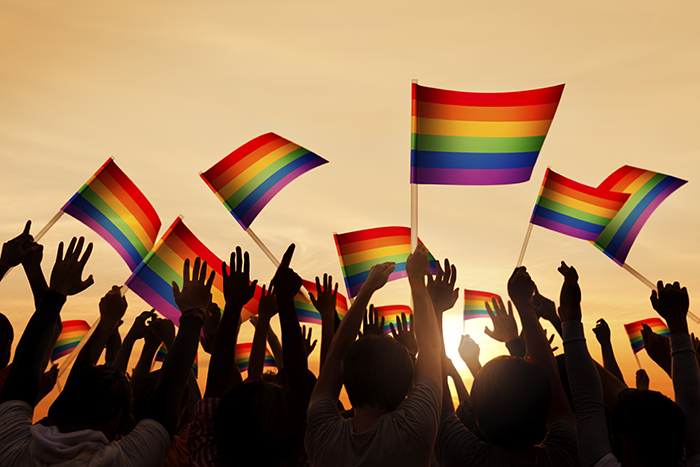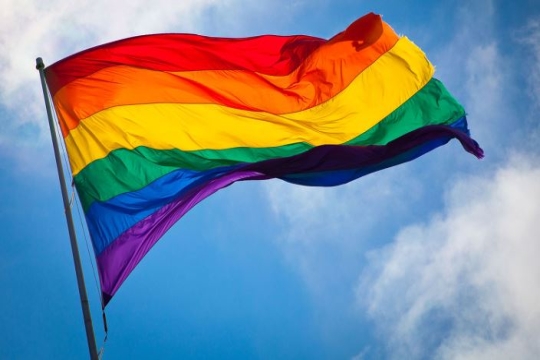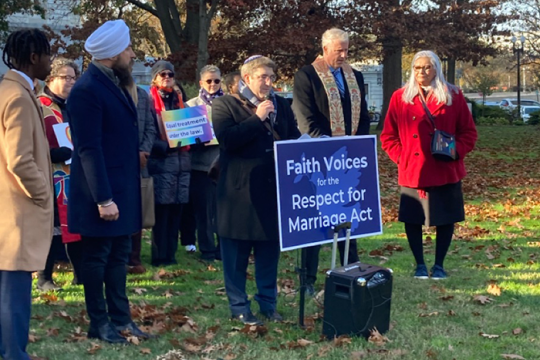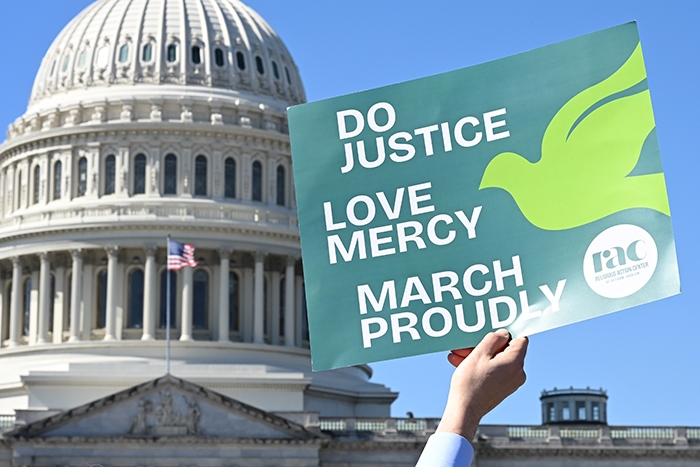
Every June in the U.S., we celebrate LGBTQ+ Pride Month. While Pride Month is a time to celebrate, affirm, honor, and fight for the LGBTQ+ community, it was originally established to commemorate the 1969 Stonewall Uprising. Following a police raid on the Stonewall Inn, a popular gay bar in New York City, patrons fought back against what had become routine harassment by the New York City police department. Many credit Marsha P. Johnson, a Black transgender woman, with starting the uprising that became an iconic flashpoint that helped sparked the modern LGBTQ+ rights movement.
While it is important to celebrate and show up for the LGBTQ+ community during Pride Month, our support should not be limited to just one month of the year. Already in 2023, there have been over 500 hundred bills introduced in state legislatures across the country that attack the LGBTQ+ community – especially LGBTQ+ children. These include laws prohibiting gender-affirming medical care, restricting transgender participation in school athletics, censoring curricula that are LGBTQ+ inclusive, banning drag shows, and more. In April, the U.S. House of Representatives passed the first-ever federal anti-transgender sports ban. The epidemic of anti-trans violence, which historically targets transgender Women of Color, continues nationwide. At least 38 transgender or gender non-conforming people were killed in 2022 and at least 12 have already been murdered in 2023. These legislative and physical attacks harm LGBTQ+ people throughout the year and has the potential to cause years of trauma and generational trauma.
The Reform Movement has long supported LGBTQ+ inclusion, beginning in 1965 when Women of Reform Judaism (WRJ) called for decriminalization of homosexuality. Since then, we have successfully advocated for key advances in LGBTQ+ equality, including federal hate crimes legislation, the repeal of “Don’t Ask, Don’t Tell,” marriage equality, and more. In 2015, the Union for Reform Judaism (URJ) and Central Conference of American Rabbis (CCAR) passed historic resolutions affirming the rights of transgender and gender non-conforming people — the farthest-reaching transgender rights resolutions of any major religious denomination at the time. Earlier this year, the CCAR passed a new resolution on advocating for transgender people, and Reform Movement leaders reaffirmed our unequivocal support for transgender rights.
This commitment to LGBTQ+ equality is guided by our Jewish text and tradition. In the story of creation, the first story we read in the Torah, we learn that every person is created b’tzelem Elohim – in the holy image of God (Genesis 1:27). The Mishnah builds on this core teaching: “when humans stamp coins with one seal they are all identical, but the Holy One stamps every human being uniquely so that none is like another” (Mishnah Sanhedrin 4:5). However, there is much more to learn from this verse in Genesis, especially in the context of addressing transphobia. The full verse reads “And God created humankind in the divine image, creating it in the image of God — creating them male and female” (Genesis 1:27). While some interpret this to mean that God created men and women in the divine image, Rabbi Margaret Moers Wenig posits that the text actually implies not only male and female but also “every combination in between.” As Rabbi Wenig explains, “this verse is a merism, a figure of speech in which a totality is expressed by two contrasting parts (e.g. ‘young and old,’ ‘thick and thin,’ ‘near and far’).” Jewish tradition describes God as having many gendered attributed but no body, and if God has many gendered attributes, so too can humans have a multiplicity of gendered identities. In fact, our Jewish legal texts mention at least six different genders across the gender spectrum.
It is important that we take time during June to celebrate, while also committing ourselves to action. Here are some of the many, potentially lifesaving actions you can affirm and celebrate the LGBTQ+ community and advocate for LGBTQ+ rights during the month of June and throughout the year:
- Host a Pride Shabbat – A Pride Shabbat service is a great opportunity to highlight LGBTQ+ inclusion. Check out our Pride Shabbat Resources to include in your service or program (during Pride Month or any other month of the year). This year, the RAC is also joining our interfaith partners in launching Faith for Pride: a month-long effort to highlight religious support for LGBTQ+ equality. Visit the Faith for Pride website to find an event near you or register your own event to be featured on the site.
- Normalize pronouns in your community – Normalizing pronouns and other behaviors can have a life-saving impact on transgender and gender expansive individuals, especially youth. Use the URJ Quick Guide to Pronounsto learn how to incorporate pronouns into your everyday life.
- Contact your state elected officials – Urge your Governor and State Legislators to stop attacks on LGBTQ+ people.
- Contact your Members of Congress – Urge your Members of Congress to reintroduce the Equality Act to provide civil rights protections for all LGBTQ+ people.
- Share the 2003 resolution on Transgender and Bisexual Rights from the WRJ
- Order and read Mishkan Ga'avah: Where Pride Dwells: A Celebration of LGBTQ Jewish Life and Ritual from CCAR Press
Related Posts

Pride 2024: LGBTQ+ Advocacy this June and Beyond


